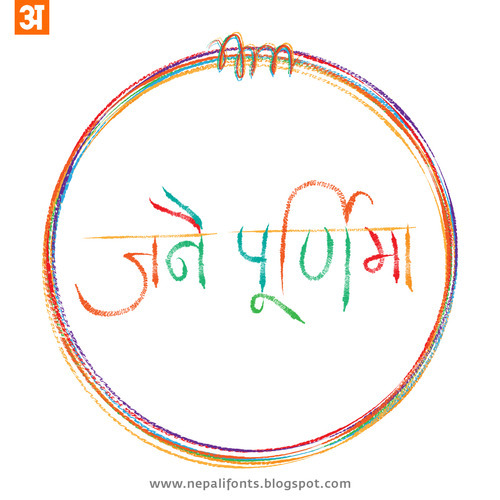Janai Purnima
Janai Purnima is observed in the month of Shrawan. It is called Rakshya Bandhan as this festival observes the bond of purity and security. This festival is celebrated by Hindus all over the world.
Janai Purnima is Sacred Thread Festival. On this day, Hindu men, especially the Brahmins and Chettris perform their annual change of Janai and all who celebrates this festival put a scared thread around their wrist.
Janai is a cotton string worn across the chest by Hindu male. This thread is only given to males during a long and impressive religious ceremony called Bratabandhan. Almost all the religion has type of Bratabandhan, but known by different names. Bratabandhan is basically a formal process of accepting someone in the religion.
The Janai initiates the boy into manhood and commands them to devotedly follow the religion and the path of truth. The Janai must be worn every day of their lives after they listen their mantra from the guru during the Bartabandha.
Janai is regarded as symbol of body, speech and mind, and when the knots are tied the person wearing it is supposed to gain complete control over each of them.
This cord is changed if it becomes untidy or dishonored due to those acts which are forbidden by religion. However, Janai must be changed without fail on Rakhsya Bandhan Day.
A day before Janai purnima the persons wearing janai should make themselves 'clean' by shaving or cutting hair and take a good bath. They undergo a partial fasting, taking only one meal of foods considered to be 'clean' - no meat, no onions or garlic. Before big event Hindus prefer to clean their body by keeping fasting. Satvic food is prescribed for all Hindu ritual and festival.
In the Purnima morning men usually go to rivers and ponds nearby, to take secret bath dipping himself thrice in the water. Men, then change their Janai. Break the old ones.
However in cities, the family priest (Pandit / Puret) comes to the residence. The entire family gathers around pandit as he reads the importance and stories of the from a holy book (patro) and performs a ceremony, which purifies the new thread, and places it about the men’s neck across the chest. In a payment the priest is given foodstuffs and monies. The money is called Dakshina and other stuff are called Daan in Sanskrit.

the end
No comments:
Post a Comment